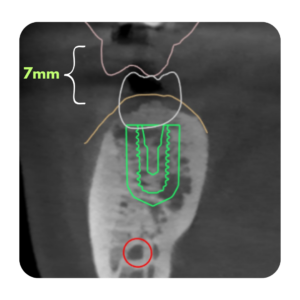
Dental implant surgery can be a life-changing experience for patients, but it is essential to manage their expectations before, during, and after the procedure to ensure a successful outcome. As a dental implant surgeon, it is your responsibility to educate your patients and provide them with a clear understanding of what to expect before, during, and after the surgery. In this article, we will discuss the key steps you should take to manage patient expectations.
Step 1: Explain the Procedure
Before starting the procedure, it is important to educate your patient about what to expect during the surgery and postoperatively. This includes explaining the steps involved in the procedure, the expected duration of the surgery, and the potential risks and complications. You should also provide the patient with detailed information about the type of anesthesia that will be used during the procedure, how long it will take for the patient to recover, and any postoperative instructions they should follow.
Step 2: Address Patient Concerns
Patients may have concerns about the procedure, such as pain, discomfort, or the possibility of complications. It is essential to address these concerns and provide the patient with realistic expectations about what to expect during and after the surgery. You should also explain the measures you will take to minimize any potential risks and ensure the patient’s safety and comfort.

[mepr-show if=”loggedout”]

Already a Study Club member? Login
[/mepr-show]
[mepr-show if=”loggedin”]
Step 3: Manage Pain and Discomfort
Dental implant surgery can cause some discomfort, but it is essential to manage the patient’s pain and discomfort during and after the procedure. This includes providing the patient with appropriate pain medication and postoperative instructions for managing pain and discomfort. You should also educate the patient about what to expect in terms of pain and discomfort and how to manage it effectively. Narcotic pain medications are rarely needed in surgery, and adding a dose of steroids to your patient regimen can make a massive difference in post op discomfort. Be sure to be mindful of prescribing steroids in patients with diabetes, as a rule I do not prescribe gluco-corticosteroids to diabetic patients because it can spike their blood sugar and make it harder to manage.
Step 4: Follow Up with the Patient
After the procedure, it is essential to follow up with the patient to ensure that they are healing properly and to address any concerns or questions they may have. This includes scheduling regular appointments to check the patient’s progress, monitoring the healing process, and ensuring that the patient is following the recommended postoperative care instructions. Calling your patient the evening of the surgery or the next day is a great way to build good rapport, answer any questions that patients had not thought of earlier, and head off any emergencies before they become urgent. It’s also a great practice builder!
[/mepr-show]




Responses
For single implant surgeries I find that I am just telling patients to handle it with over the counter meds. Is that what you do?
I 99% if the time do not prescribe any narcotics, steroids almost always except diabetics